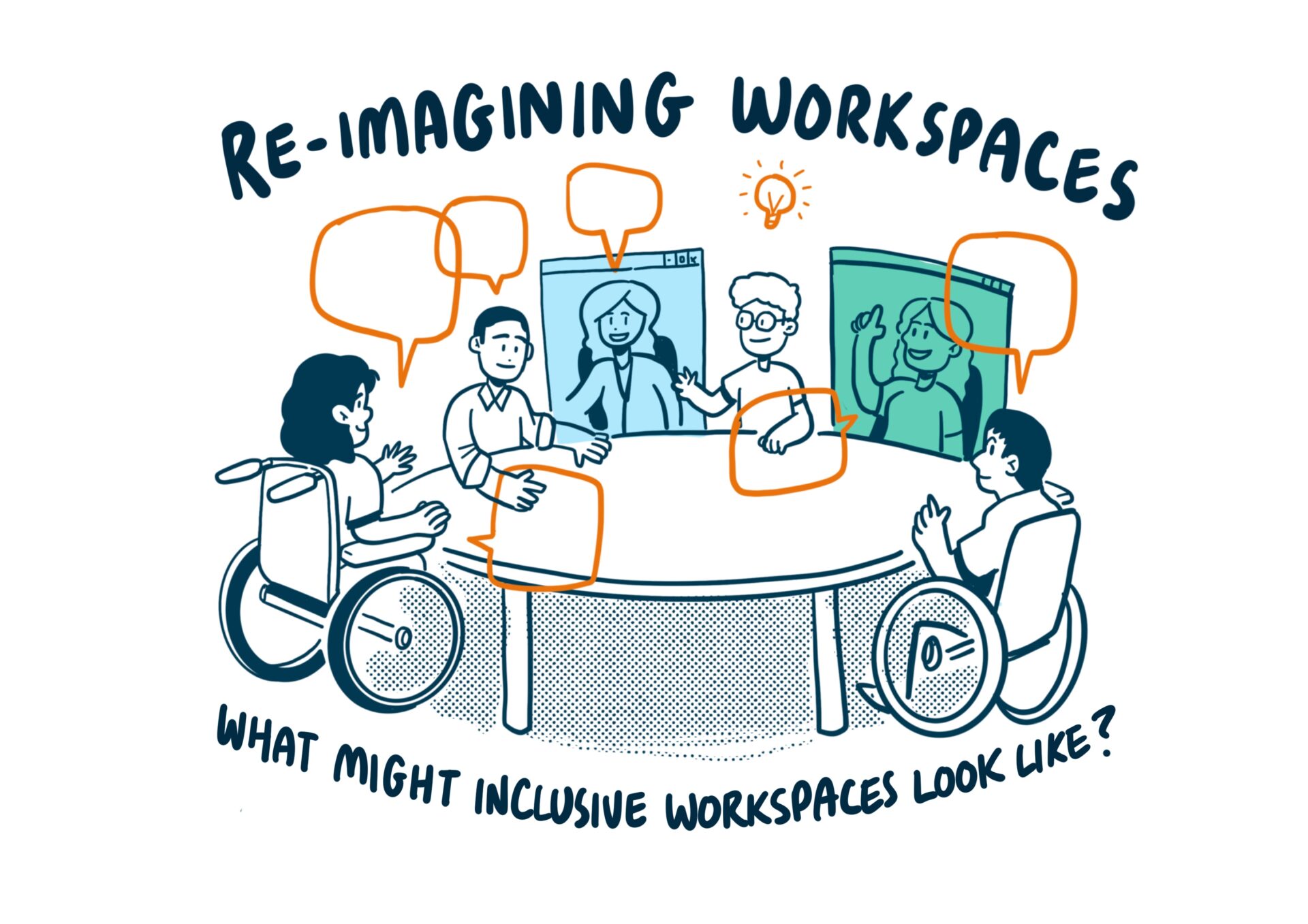About the project
The pandemic has made us reconsider how we work. In the UK, the lockdowns gave us insights into different ways of working, of interacting, and of being. And sometimes, these differences gave us glimpses of how we might do things better.
For those of us with physical impairments or disabilities, remote and hybrid working levelled the playing field in terms of access to some types of employment. But it also raised many questions. For example, who should choose whether work tasks can be carried out remotely: the employer or the employee? And how can we make sure that those working remotely have the same opportunities as those who work in the office?
In the UK, the disability employment gap in 2021 was 28%, and the disability pay gap was 19%. Our research asks how we can use insights from the pandemic to challenge this. How can we imagine more inclusive work places and practices for those with physical or energy impairments? Can remote and hybrid working practices tackle the disability employment gap? And how can we imagine remote and hybrid working policies that are equitable and fair?
Throughout 2022, we interviewed employees and workers with disabilities, employers, representative groups and charities, and other researchers to try and answer these questions.
Pilot Study: Interim Report
We were amazed by the fantastic response to our call for participants and would like to extend a huge thank you to everyone who spoke with us and shared their experiences of remote and hybrid working over the pandemic.
We are in the process of analysing the data in detail, but we’re pleased to share an interim report following the pilot study.
This was funded through the University of Kent’s Investment in Research Fund and we extend our thanks for the University’s ongoing support.
Emerging Findings…
To read more about emerging findings and our recommendations, click here.
